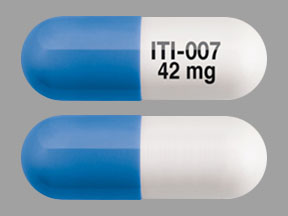
Caplyta Coupons & Savings Card – Discount Prices from $1734.90
My prescription
Edit
42MG, Caplyta (30 Capsules)
Select pharmacy

CVS
$1791.52
COUPON PRICE
Albertsons
$1734.90
COUPON PRICE
Walgreens
$1818.86
COUPON PRICE
Walmart
$1860.40
COUPON PRICECaplyta savings card
Show this card to your pharmacist
Albertsons
$1734.90
BIN
ID
PCN
GRP
019876
LH72C9C4EB
CHIPPO
LHX
Powered by
Related atypical antipsychotics prescriptions
More prescriptions for schizophrenia
Related atypical antipsychotics prescriptions
More prescriptions for schizophrenia
Price history for Caplyta
30 Capsules, 42MG
Average retail price for Caplyta
Average SaveHealth price for Caplyta
Our price history data is based on aggregated prescription data collected from participating pharmacies in America. Our prescription data updates daily to reflect the latest price changes. If you notice a missing data point, it means there wasn't sufficient data available to generate a monetary value for that date.
*Retail prices are based on pharmacy claims data, and may not be accurate when we don't have enough claims.
Caplyta dosage forms
Dosage Quantity Price from Per unit 10.5MG 30 Capsules $1736.96 $57.90 21MG 30 Capsules $1735.60 $57.85 42MG 30 Capsules $1734.90 $57.83
| Dosage | Quantity | Price from | Per unit |
|---|---|---|---|
| 10.5MG | 30 Capsules | $1736.96 | $57.90 |
| 21MG | 30 Capsules | $1735.60 | $57.85 |
| 42MG | 30 Capsules | $1734.90 | $57.83 |
Is Caplyta better than Abilify?
The effectiveness of Caplyta (lumateperone) versus Abilify (aripiprazole) can vary depending on the individual and the specific condition being treated. Both medications are used to treat mental health conditions, but they have different mechanisms of action and side effect profiles. Caplyta is primarily used for the treatment of schizophrenia and bipolar depression, while Abilify is used for a broader range of conditions, including schizophrenia, bipolar disorder, and as an adjunct for major depressive disorder. The choice between these medications should be based on a thorough evaluation by a healthcare provider, considering the patient's specific symptoms, medical history, and potential side effects. It is important for patients to discuss with their healthcare provider to determine which medication may be more suitable for their individual needs.
Does caplyta cause weight loss?
Caplyta (lumateperone) is not typically associated with weight loss. In fact, weight gain is a more common side effect observed in some patients taking Caplyta. However, individual responses to medication can vary, and any concerns about weight changes should be discussed with a healthcare provider.
How sedating is Caplyta?
Caplyta (lumateperone) can cause sedation as a side effect, but the degree of sedation varies among individuals. Some people may experience mild sedation, while others may find it more pronounced. It is important for patients to monitor how they feel after taking Caplyta and discuss any concerns with their healthcare provider, especially if sedation affects their daily activities.
What medicine is comparable to caplyta?
Caplyta (lumateperone) is an atypical antipsychotic medication. Medications that are comparable to Caplyta include other atypical antipsychotics such as aripiprazole (Abilify), olanzapine (Zyprexa), quetiapine (Seroquel), risperidone (Risperdal), and lurasidone (Latuda). It is important for patients to consult with their healthcare provider to determine the most appropriate medication for their specific condition.
How do you know if Caplyta is working?
To determine if Caplyta is working, one should monitor for improvements in the symptoms it is intended to treat. For individuals taking Caplyta for schizophrenia, this may include a reduction in hallucinations, delusions, or disorganized thinking. For those using it for bipolar depression, improvements might be seen in mood, energy levels, and overall functioning. It is important to have regular follow-ups with a healthcare provider to assess the effectiveness of the medication and make any necessary adjustments. Additionally, any side effects or concerns should be discussed with the healthcare provider.
